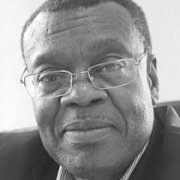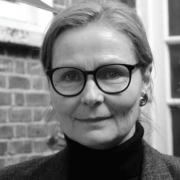Past Event
Global Think Tank Summit 2018
The public session of the Global Think Tank Summit will discuss trade and fair global competition
On 7-9 November 2018 Bruegel and and the Think Tanks and Civil Societies Program (TTCSP) of the University of Pennsylvania will hold the Global Think Tank Summit 2018 in Brussels. The event will gather a hundred executives from the most influential Think Tanks around the world and feature panels on topics of global importance.
This event will be held in BOZAR. On the 7th of November, part of the programme will be open for the public. Below, you will find the link to register for the public session as well as the agenda.
Register for the public session
Following the keynote speech by European Commissioner Malmström a panel will discuss how globalisation and global competition can be managed fairly.
There is a backlash in many parts of the world against globalisation and increasing support for protectionism. Some argue it has been responsible for lifting millions of people out of poverty, while others blame it for job losses and stagnation of wages. Indeed, global competition is increasing global welfare but does create losers and winners. Can high and increasing levels of trade and investment integration be sustained or will globalisation gradually retreat due to rising protectionism? Is globalisation ‘fair’ geographically and across income levels? Is the current multilateral system fit for purpose to manage globalisation to the benefit of all countries? In a world in which very different economic system co-exist, is the level of cooperation on competition policy, industrial policy, corporate governance sufficient or does it need to be improved? Indeed, can think tanks play a role in measuring the impacts of globalisation on societies and make relevant policy recommendations to both national policy makers and multilateral institutions? This session with think tanks leaders and one or two related experts in the field will explore these questions.
Schedule
15:30-16:00
Registration & welcome coffee
16:00-16:30
Welcome Hosts and Organizers
James McGann, Director, Think Tank and Civil Societies Program, The Lauder Institute, University of Pennsylvania
Guntram B. Wolff, Former Director
16:30-17:00
Keynote speech: New Trade Patterns, Alliances and Paradigms
Cecilia Malmström, Assar Gabrielsson professor at Göteborg School of Economics; Former EU Trade commissioner
17:00-18:00
Plenary Panel: How can globalisation and global competition be managed fairly?
Chair: Aart de Geus, Chairman and Chief Executive Officer, Bertelsmann Stiftung
Edward Kofi Anan Brown, Senior Director Research and Policy Engagements, African Center for Economic Transformation
Jacob Funk Kirkegaard, Senior Fellow, The German Marshall Fund of the United States
Catherine McBride, Senior Economist International Trade and Competition Unit, Institute of Economic Affairs
Jan Mischke, MGI Partner, Zurich
Izumi Ohno, Director, Japan International Cooperation Agency Research Institute
Zhao Hai, Research Fellow, Institute of World Economics and Politics, Chinese Academy of Social Sciences
18:00
End
Speakers

Edward Kofi Anan Brown
Senior Director Research and Policy Engagements, African Center for Economic Transformation

Aart de Geus
Chairman and Chief Executive Officer, Bertelsmann Stiftung

Zhao Hai
Research Fellow, Institute of World Economics and Politics, Chinese Academy of Social Sciences

Jacob Funk Kirkegaard
Senior Fellow, The German Marshall Fund of the United States

Cecilia Malmström
Assar Gabrielsson professor at Göteborg School of Economics; Former EU Trade commissioner

Catherine McBride
Senior Economist International Trade and Competition Unit, Institute of Economic Affairs

James McGann
Director, Think Tank and Civil Societies Program, The Lauder Institute, University of Pennsylvania

Jan Mischke
MGI Partner, Zurich

Izumi Ohno
Director, Japan International Cooperation Agency Research Institute

Guntram B. Wolff
Former Director
Location & Contact
Matilda Sevon
[email protected]















